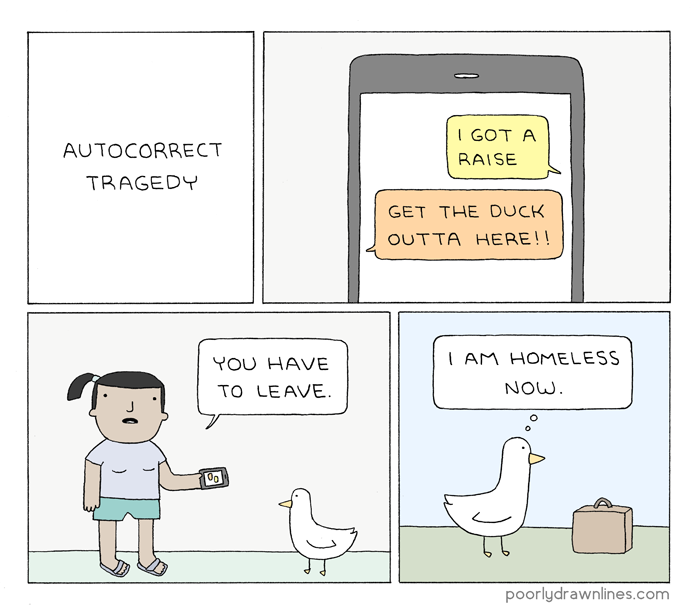![[After setting your car on fire] Listen, your car's temperature has changed before. [After setting your car on fire] Listen, your car's temperature has changed before.](http://imgs.xkcd.com/comics/earth_temperature_timeline.png)


[Content note: this is pretty much a rehash of things I’ve said before, and that other people have addressed much more eloquently. My only excuse for wasting your time with it again is that SOMEHOW THE MESSAGE STILL HASN’T SUNK IN. Pitching this as “market” vs. “government” is overly simplistic, but maybe if I am overly simplistic sometimes then it will sink in better.] IN.]
EpiPens, useful medical devices which reverse potentially fatal allergic reactions, have recently quadrupled in price, putting pressure on allergy sufferers and those who care for them. Vox writes that this “tells us a lot about what’s wrong with American health care” – namely that we don’t regulate it enough:
The story of Mylan’s giant EpiPen price increase is, more fundamentally, a story about America’s unique drug pricing policies. We are the only developed nation that lets drugmakers set their own prices, maximizing profits the same way sellers of chairs, mugs, shoes, or any other manufactured goods would.
Let me ask Vox a question: when was the last time that America’s chair industry hiked the price of chairs 400% and suddenly nobody in the country could afford to sit down? When was the last time that the mug industry decided to charge $300 per cup, and everyone had to drink coffee straight from the pot or face bankruptcy? When was the last time greedy shoe executives forced most Americans to go barefoot? And why do you think that is?
The problem with the pharmaceutical industry isn’t that they’re unregulated just like chairs and mugs. The problem with the pharmaceutical industry is that they’re part of a highly-regulated cronyist system that works completely differently from chairs and mugs. And the reason they’re part of a highly-regulated cronyist system that doesn’t work is because of Vox publishing articles like this.
If a chair company decided to charge $300 for their chairs, somebody else would set up a woodshop, sell their chairs for $250, and make a killing – and so on until chairs cost normal-chair-prices again. When Mylan decided to sell EpiPens for $300, in any normal system somebody would have made their own EpiPens and sold them for less. It wouldn’t have been hard. Its active ingredient, epinephrine, is off-patent, was being synthesized as early as 1906, and costs about ten cents per EpiPen-load.
Why don’t they? They keep trying, and the FDA keeps refusing to approve them for human use. For example, in 2009, a group called Teva Pharmaceuticals announced a plan to sell their own EpiPens in the US. The makers of the original EpiPen sued them, saying that they had patented the idea epinephrine-injecting devices. Teva successfully fended off the challenge and brought its product to the FDA, which rejected it because of “certain major deficiencies”. As far as I know, nobody has ever publicly said what the problem was – we can only hope they at least told Teva.
In 2010, another group, Sandoz, asked for permission to sell a generic EpiPen. Once again, the original manufacturers sued for patent infringement. According to Wikipedia, “as of July 2016 this litigation was ongoing”.
In 2011, Sanoji asked for permission to sell a generic EpiPen called e-cue. This got held up for a while because the FDA didn’t like the name (really!), but eventually was approved under the name Auvi-Q, (which which really if I were a giant government agency that rejected rejecting things for having dumb names, names would be going straight into the wastebasket). But after unconfirmed reports wastebasket. But after some rumors (never confirmed) of incorrect dosage delivery, they recalled all their products off the market.
This year, a company called Adamis decided that in order to get around the patent on devices that inject epinephrine, they would just sell pre-filled epinephrine syringes and let patients inject themselves. The FDA rejected it, noting that the company involved had done several studies but demanding that they do some more.
Also, throughout all of this a bunch of companies are merging and getting bought out by other companies and making secret deals with each other to retract their products and it’s all really complicated.
None of this is because EpiPens are just too hard to make correctly. Europe has eight competing versions. But aside from the EpiPen itself, only one competitor has ever made it past the FDA and onto the pharmacy shelf – And of Of course there’s a catch. With ordinary medications, every other medication, pharmacists are allowed to interpret prescriptions for a brand name as prescriptions for the generic unless doctors ask them not to. For example, if I write a prescription for “Prozac”, a pharmacist knows that I mean anything containing fluoxetine, the chemical ingredient sold under the Prozac brand. They don’t have to buy it directly from Prozac trademark-holder Eli Lilly. It’s like if someone asks for a Kleenex and you give them a regular tissue, or if you suggest putting something in a Tupperware but actually use a plastic container made by someone other than the Tupperware Corporation.
EpiPens are protected from this substitution. If a doctor writes a prescription for “EpiPen”, the pharmacist must give an EpiPen-brand EpiPen, not an Adrenaclick-brand EpiPen. This is apparently so that The supposed reason is so that so children who have learned how to use an EpiPen don’t have to relearn how to use an entirely different device (hint: you jam the pointy end into your body).
If you know anything at all about doctors, you know that they have way too much institutional inertia to change from writing one word on a prescription pad to writing a totally different word on a prescription pad, especially if the second word is almost twice as long, and especially especially if it’s it is just to do something silly like save a patient money. I have an attending who, whenever we are dealing with anything other than a life-or-death matter, just dismisses it with “Nobody ever died from X”, and I can totally hear him saying “Nobody ever died from paying extra for an adrenaline injector”.
So Adrenaclick continues to languish in obscurity.So why
There are a lot of different factors, but let me focus on the most annoying one. I don’t know, but here’s a conspiracy theory. EpiPen manufacturer Mylan Inc spends about a million dollars on lobbying per year. OpenSecrets.org tells us what bills got all that money. They seem to have given the most to defeat year – which is a pretty good deal since their near-monopoly on EpiPens earns them billions. They gave $250,000 to the Clinton Foundation. And their CEO is a senator’s daughter. Here’s something fun we can do – let’s look at OpenSecrets.org and see what exactly they spent all that lobbying on. The most lobbying activity seems to have occurred on S.214, the “Preserve Access to Affordable Generics Act”. The bill would ban pharmaceutical companies from bribing generic companies not to create generic drugs. The reports don’t list whether Mylan was for or against this act, but I’m going to go out on a limb and bet they were in the NO camp.
Did they win? Yup. In fact, various versions of this bill have apparently failed so many times that FDA Law Blog notes that “insanity is doing the same thing over and over again and expecting different result”.
So let me try to make this easier to understand.
Imagine that the government creates the Furniture and Desk Association, an a government agency which declares that only IKEA is allowed to sell chairs. IKEA responds by charging $300 per chair. Other companies try to sell stools or sofas, but get bogged down for years in litigation over whether these technically count as “chairs”. When a few of them win their court cases, the FDA shoots them down anyway ask for permission to sell chairs, and the FDA turns them down for vague reasons it refuses to share, or because they haven’t done studies showing that their the chairs will not break, or because the studies that showed their the chairs will not break didn’t include a high enough number of morbidly obese people so we can’t be sure they won’t break. Finally, Target spends tens of millions of dollars on lawyers and gets the okay to compete with IKEA, but people can only get Target chairs if they have a note signed by a professional interior designer saying that their room needs a “comfort-producing “four-legged seating implement” and which absolutely definitely does not mention “chairs” anywhere, because otherwise a child who was used to sitting on IKEA chairs might sit down on a Target chair the wrong way, get confused, fall off, and break her head.
(You’re going to say this is an unfair comparison because drugs are potentially dangerous and chairs aren’t – but 50 people die each year from falling off chairs in Britain alone and as far as I know nobody has ever died from an EpiPen malfunction.)
Imagine Now suppose that this whole system is going on at the same time that IKEA spends donates millions of dollars lobbying senators the Senators about chair-related issues, and that these same senators Senators vote down a bill preventing IKEA them from paying off other companies to stay out of the chair industry. Also, suppose that a bunch of people are dying each year of exhaustion from having to stand up all the time because chairs are too expensive unless you’ve got you have really good furniture insurance, which is totally a thing and which everybody is legally required to have.
And now imagine that a news site responds responded with an article saying the government doesn’t regulate chairs enough.
But yeah bin this case cronyism via lobbying seems to be the issue.

So the question isn't whether 'more' or 'less' regulation is needed. The question is what sort of regulation is needed. We live in a complicated world and every regulation has side effects. Regulations put in place to maintain safe standards also create barriers to competition that let rentiers thrive. Changing the standards might put a cap on the rent extracted by incumbents. Explicit limits on that rent might also be effective. But you have to look at the details to make a decision rather than applying some general rule.
The author also seems to think that the chair industry is unregulated. Look at the tags on your upholstery. Companies that make chairs can only use certain materials and have to meet standards for fire-retardant treatments. This safety regulation is just as crucial as the epi-pen safety regulation. But in the case of chairs, we have managed a better system that encourages many companies to make chairs and compete with each other. Some companies sell high priced chairs others sell low priced ones. But everyone can buy one.
So we don't need to 'deregulate' the epi-pen market. We need to change its regulations. And as a model, we can look at the regulations that shape other more competitive markets and work towards a similar set of regulations for epi-pens and similar medical devices. Maybe that means removing some current rules. Maybe it means changing them. Maybe it means adding more rules. But it is certainly not a simple 'regulation is the problem'. Because the problem in any market both the regulations and the lack of regulation simultaneously. The good actors are too constrained and the bad actors are too unconstrained.

















